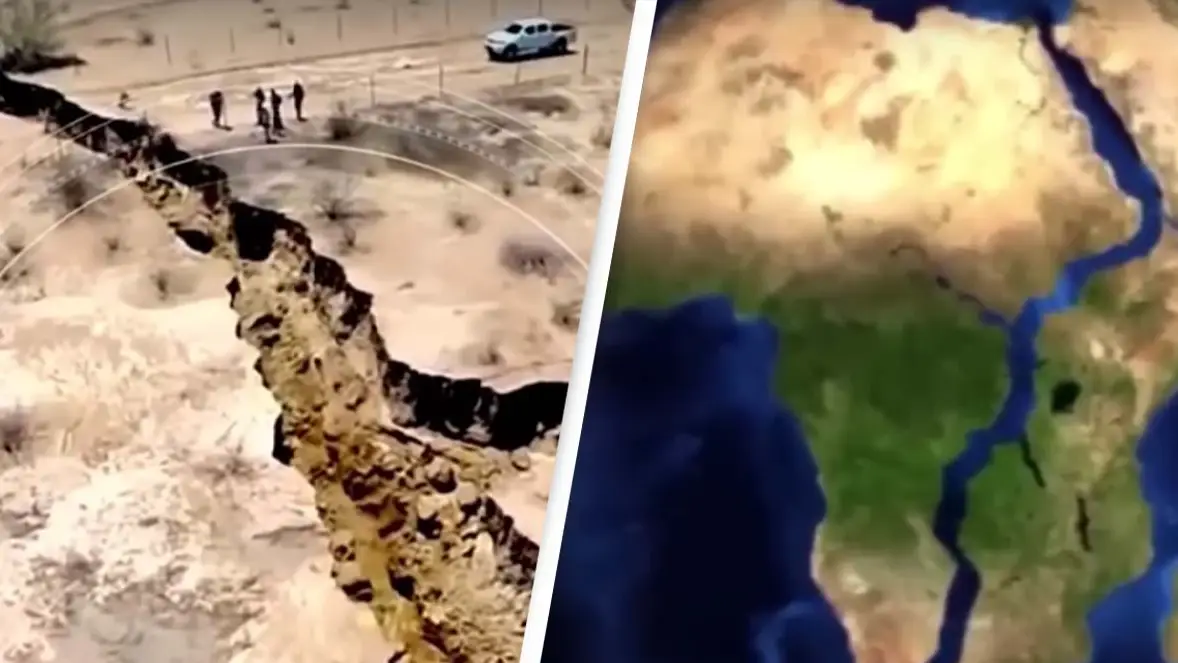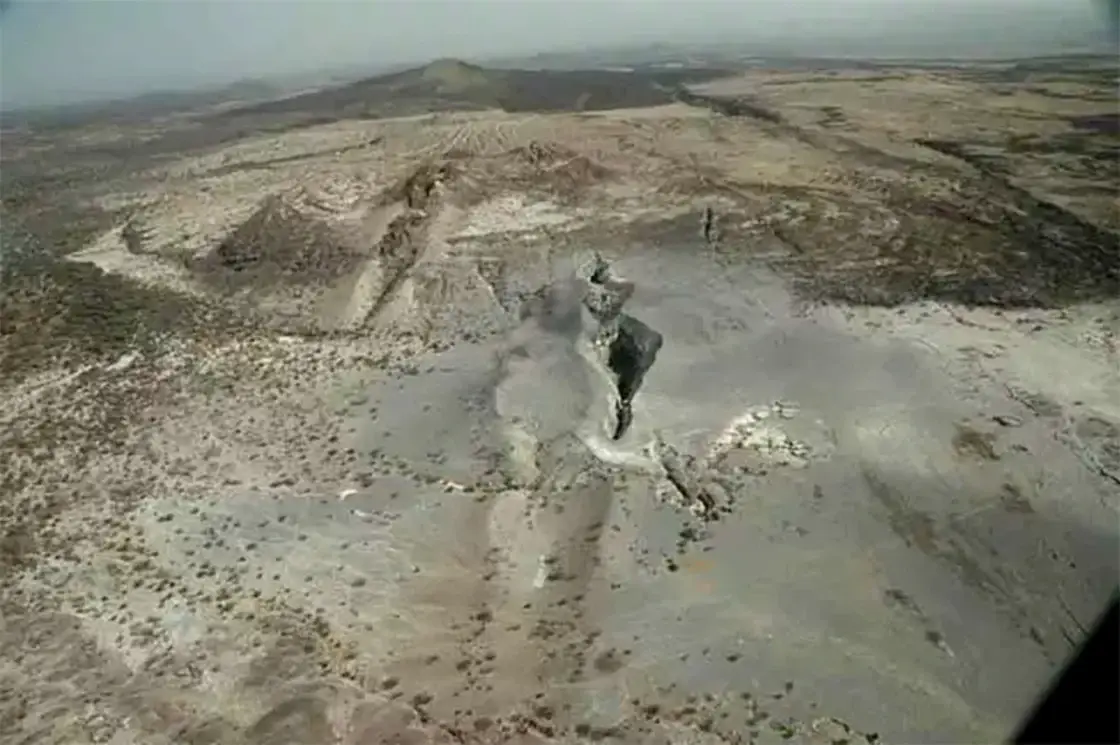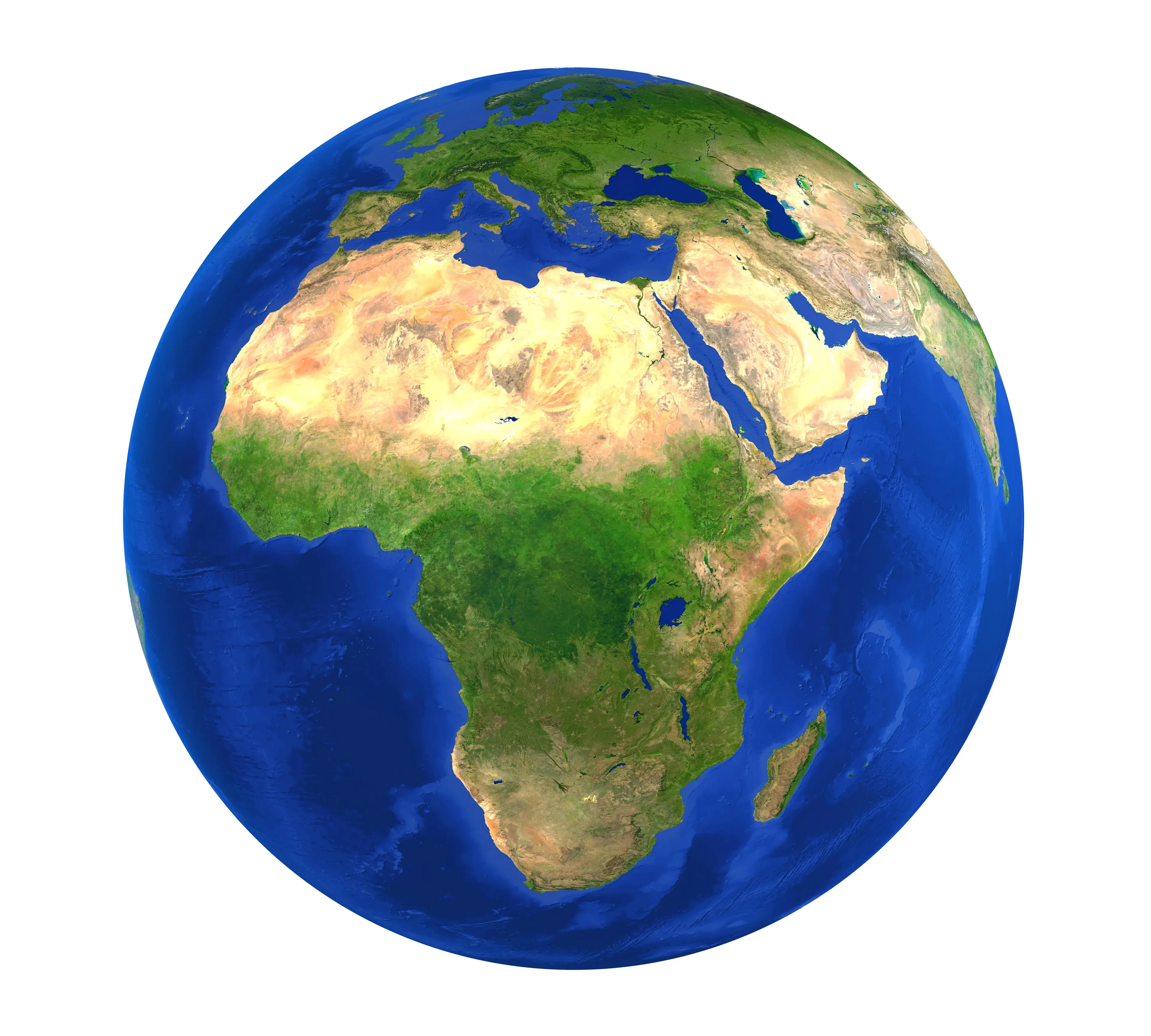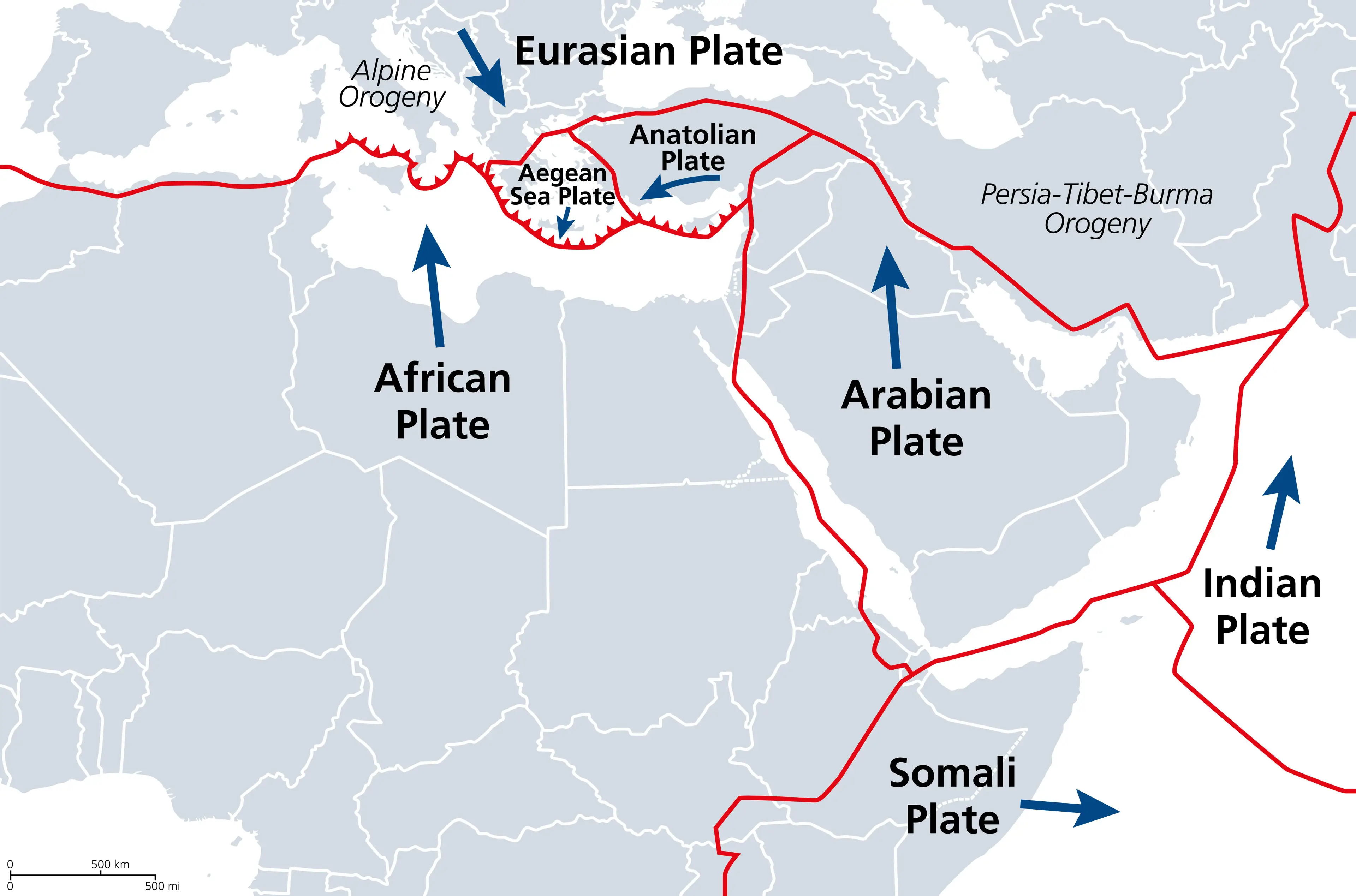
Scientists have discovered the formation of a new ocean as Africa begins to split.
Researchers have found that the two parts of land, which make up the world's second-largest and second-most populous continent, have started to separate - making way for a whole new ocean to run through the divide.
Countries like Zambia and Uganda could one day have their own coastlines if the land mass continues to separate.
Advert
According to the peer-reviewed journal Geophysical Research Letters, geologists have been able to confirm that a new ocean is being created as the African continent is split in half.

Scientists have been able to locate the exact spot where, very deep underground, the continent - which has a land area of over 30 million square kilometres - first opened up.
The crack is positioned on the borders of three tectonic plates that have been gradually moving away from each other for a while now.
Geologists have noted that this complex tectonic process will make room for a totally new body of water millions of years from now.
The international effort has discovered that the crack, known as the East African Rift, currently runs 35 miles long after first appearing back in 2005 in the Ethiopian deserts.
"This is the only place on Earth where you can study how continental rift becomes an oceanic rift," explained Christopher Moore, a Ph.D. doctoral student at the University of Leeds, via NBC News.

Moore utilised satellite radar technology to monitor volcanic activity in the East African region most commonly associated with the continent’s gradual breakup.
The crack resides on the borders of the boundaries of the African, Arabian and Somali tectonic plates and for the past 30 million years, the Arabian plate has been slowly moving away from the African continent.
This exact tectonic shift has been seen before as it is what created both the Red Sea and the Gulf of Aden between the two connected landmasses.
Additionally, the Somali plate is also moving away from the African plate - peeling its way through the East African Rift Valley.
Through the use of GPS instruments, researchers have been able to make precise measurements of these land movements.
Ken Macdonald, a marine geophysicist and professor emeritus based at the University of California, explained: "With GPS measurements, you can measure rates of movement down to a few millimetres per year.

He added: "As we get more and more measurements from GPS, we can get a much greater sense of what’s going on.”
"The Gulf of Aden and the Red Sea will flood in over the Afar region and into the East African Rift Valley and become a new ocean, and that part of East Africa will become its own separate small continent," Macdonald confirmed.
The three tectonic plates are moving away from each other at a range of differing speeds, but the geophysicist has explained that the Arabian plate is moving away from Africa at a rate of approximately one inch per year.
Both the African and Somali plate are reported to be breaking away at an even slower rate, at round half an inch to 0.2 inches every year.
Topics: Science, World News